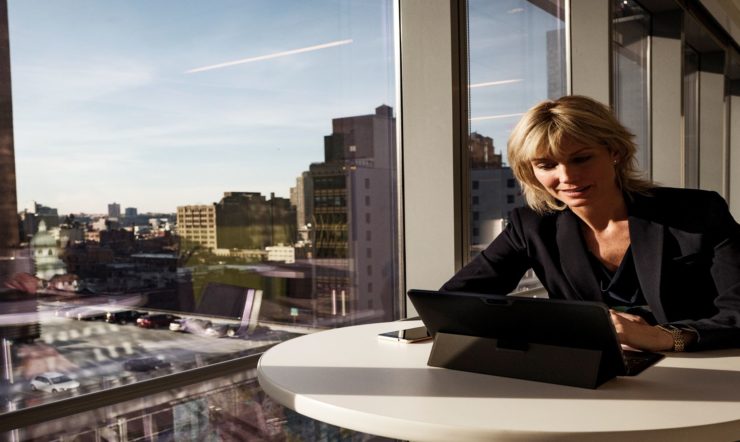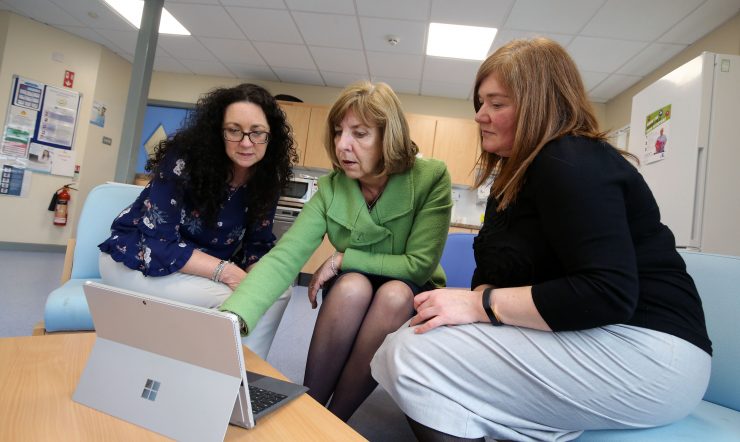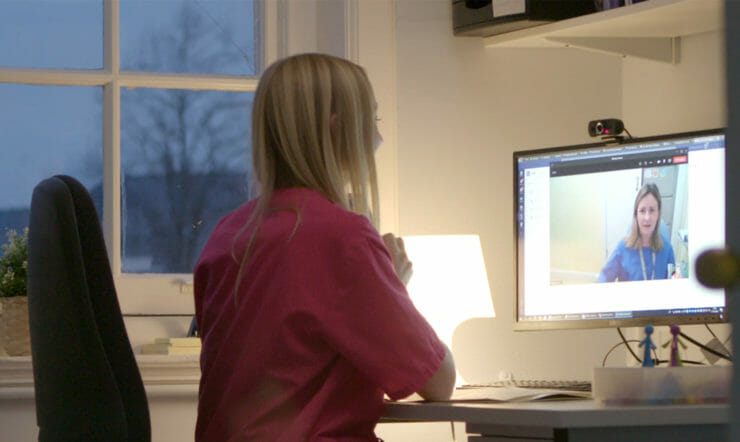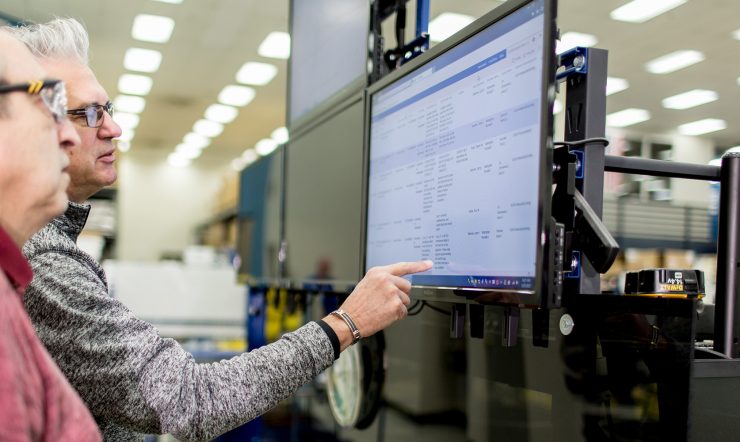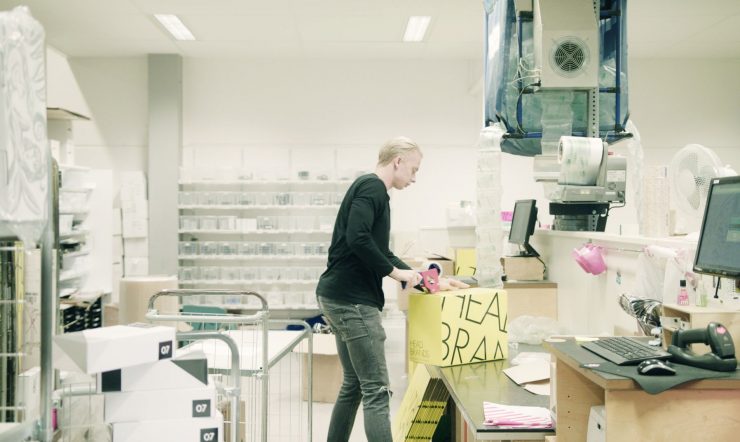Flexible ways of working are here to stay, finds new Irish research – with leaders focused on trying to maintain culture and innovation
When recently asked about their business transformation priorities, almost every business leader (97%) cited the importance of changing their firm’s ways of working to become more innovative and flexible.
This stands to reason.
Since the onset of the industrial age, our workforce has been largely rooted in a predicable rhythm of business – a nine to five working day with two hectic commutes either side. With the onset of Covid-19, we’ve seen that 200+ year-old model completely up-ended. At Microsoft, we’ve been working with countless customers and partners to enable remote working as they looked to continue meeting the needs of their own customers while keeping their employees safe.
With some organisations across Ireland unable to open office doors again, we commissioned new research with Boston Consulting Group and KRC Research to gather insights that will help our customers navigate this uncertain time and best support their talent. Engaging with 500 employees and 108 business leaders across Ireland, we asked about their experiences with remote working as well as their expectations for the future.
Both leaders and workers agree flexible, hybrid working is here to stay
While employees still see value in working from a main office at least some of the time; the research found that on average, people would now like to spend approximately one third of time outside of the traditional office setting. People see time spent in the office as a powerful way to maintain bonds with their colleagues. Indeed, 71% of employees in Ireland worked remotely during the first lockdown while leaders predict that 45% of employees will continue to work remotely.
Similarly, leaders expect a different way of working for the foreseeable future. Consider this: last year, only a small minority (22%) of companies had a set remote work policy; now a healthy majority (72%) do.
Senior executives see the opportunity to maintain productivity gains they’ve experienced while, at the same time, improve employee engagement. Our research found that seven in 10 leaders (73%) reported equal or increased productivity with remote working, and well over half (68%) see it as a powerful way to help retain their best workers, higher than the European average of 56%.
What businesses have learned about working more virtually: ensuring productivity is easy – promoting innovation less so
Drawing from my conversations with customers in recent months, I have heard from many business leaders that the challenge with more remote working has not been related to business continuity or productivity. Rather, the issue is around ensuring teams continue feeling tight-knit and very much connected to the pulse of the company’s culture.
This makes a lot of sense to me. When people are physically together five days a week, it’s easy to bond – whether it’s sharing a joke at the watercooler, having a casual team lunch, or hunkering down together to meet a deadline. Further, in an office setting, senior staff literally have the ability to “walk the halls” and talk with employees in a more informal way.
All of these seemingly little things add up to have a big impact on the health of a business and team culture.
Bold new thinking thrives when people feel like they are part of a trusted team and also a valued part of something bigger than themselves. So, it’s a red flag when we see employees’ top-three challenges with remote working:
- Maintaining company culture
- Team cohesion
- Coping with increased silos
It’s only logical to expect to see a drop in innovation, as it’s hard for new ideas to thrive in an environment where people feel more disconnected from their employer and their teams. However, similar research last year found 42% of leaders thought their companies were innovative around core products and services, which has surprisingly remained unchanged amongst leaders in Ireland this year – in contrast, our European counterparts saw a drop from 56% last year to 40% in this recent survey.
AIB rapidly implemented the move to remote working, which was without doubt a challenge on an unprecedented scale, when the majority of our employees were office based,” said Geraldine Casey, Chief People Officer, AIB. “At first, we adapted and focused on supporting and enabling our employees that could work from home, while ensuring we maintained high standards of service for our customers nationwide. Now, as we look to the ongoing future for our workforce and how we meet the evolving needs of our customers, our efforts continue to focus on further improving employee engagement, collaboration, performance, and ultimately employee wellbeing. While it has been a challenging year, I’m confident that this focus on empowering our employees will drive business success, and a better experience for our customers, as we move towards a hybrid working model.
Key learnings for leaders looking to drive productivity and innovation in a hybrid world
- Empowered teams are not only productive but drive innovation
Employees at companies that are excelling, in terms of both productivity levels and maintaining innovation output, report a very different work experience to their peers at businesses that only do well in productivity.
These workers are far more likely to feel empowered to make decisions and approach their jobs in a way that works best for them. For example, they are much more likely to say they can make a decision without a manager’s involvement (59% vs. 34% of those working in less innovative companies). They also feel it’s okay to make mistakes (71% vs. 51% in less innovative cultures).
I find this really resonates, as I believe successful leadership is about trusting teams and giving them the space they need to tackle challenges in their own way. We as leaders need to focus on removing roadblocks for our people – not micromanaging them. Further, for any company looking to innovate, failure or mistakes should not be swept under the rug or punished – rather, I believe missteps should be regarded as an important way to learn, adapt and grow.
- Protect employees’ focus
When a person is able to devote their full attention to the task at hand, it leads to superior output, and the person actually enjoys the work they are doing.
Promoting employee focus is a powerful way to kick-start innovation. Approximately 65% of people who are able to work this way say that they are proactive in regularly suggesting new solutions for addressing challenges and ideas for more effective ways of working. For businesses looking to stay a step ahead, these are the people you want in your talent pool.
One straightforward step to take is to ensure employees have proper training on technology tools and are availing of features like ‘do not disturb.’ This helps people take control of their day and make time for the work that takes focus.
- Support leaders with training and coaching
For many leaders, this year marked the first time they were responsible for leading people who were working remotely. In fact, the majority (58%) said they feel they have not yet effectively learned how to delegate and empower virtual teams. Revisiting training programmes for team leaders will be an important step forward for many businesses.
And of course, the past several months have been extremely challenging for all senior business leaders as they’ve coped with managing the twin critical priorities of maintaining business continuity while keeping workers safe. This suggests there may also be an opportunity for many businesses to reinitiate or ramp up ongoing coaching and mentoring for middle management.
The key takeaway is that the success of teamwork in a more hybrid world goes beyond just having the right technology tools. Innovation is fuelled when people feel empowered to connect with colleagues, take smart risks and speak up when they have new ideas. So, the challenge for businesses will be ensuring people feel connected to their teammates and to clearly see how the work they do as a team contributes to realising the vision of the company. Successful teams will be characterised by how productive they are as well as the sense of camaraderie, empathy and trust each team member feels. This is the very human key to innovation.
Evidence based research of business leader and employee sentiment is critical in this dynamic environment,” said Siobhán Masterson, head of Corporate Affairs, IBEC. “The biggest issue will be finding a balance between the culture of the traditional workplace and the new dynamic culture that virtual teams will require. While this is possible, there is no one simple solution as each business will have to find the best way to find a balance and integrate these two cultures.








